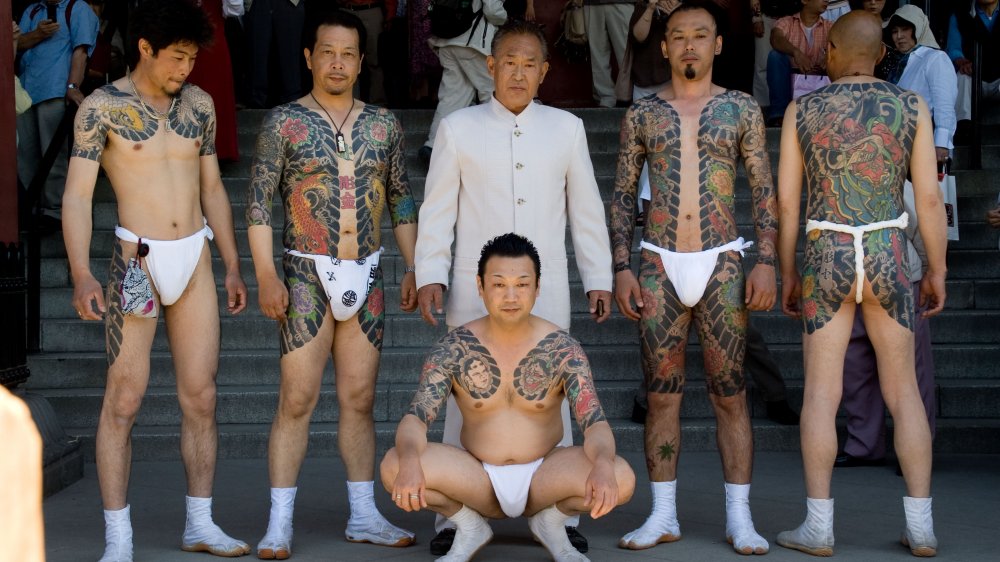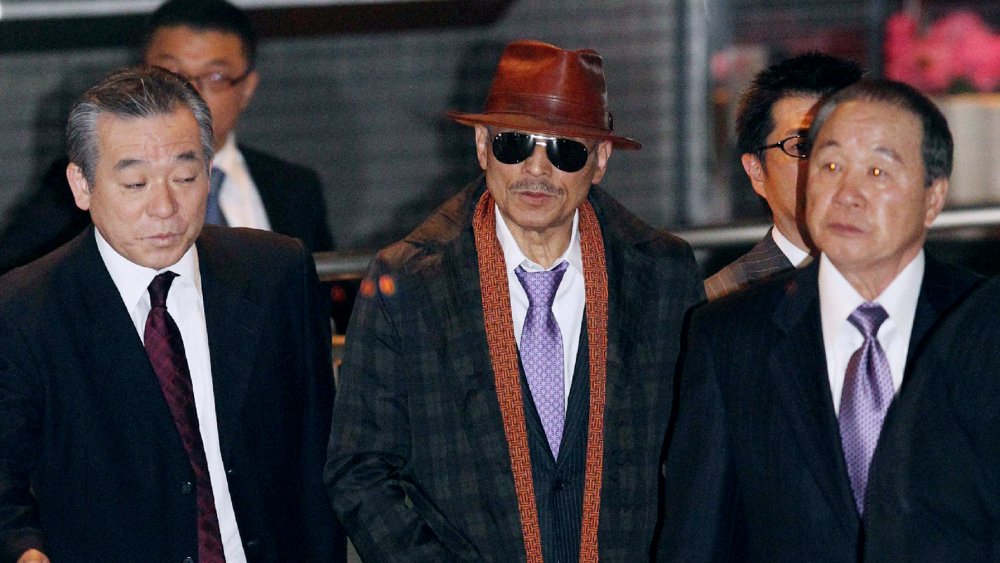Is The Yakuza Still Active?
In 2013, Tokyo-based prosthetics maker Shintaro Hayashi noticed an interesting trend in requests. Hayashi explained to ABC, "I started to see a gradual increase in people who were asking for prosthetic pinkies. They weren't the standard small, medium or large, but custom-made pinkies." Had Tokyo experienced a weirdly specific surge in finger amputations? Maybe someone managed to turn pinkie swearing into a blood sport or hand circumcisions had improbably become a thing. It turned out that Hayashi's pinkie-impaired clientele consisted of former Yakuza members who had gone straight.
The Yakuza notoriously forced members who committed some offense to atone by hacking off a portion of their pinkie in a process called "yubitsume." It was almost the opposite of a secret society handshake. This was a telltale sign that someone belonged to one of Japan's infamous mafia clans and probably a handy way to dissuade defection. A truncated pinkie created a visual stigma that couldn't shake off easily and made it difficult to find other work. But from the sound of things that tide was changing because Hayashi filled more than 300 orders over the course of a decade. There probably aren't many people who can say they gave 300 Yakuza members the finger and managed to stay in one piece, but Japan's criminal underbelly ain't what it used to be.
From severing pinkies to severing ties
Just as Paula Cole pondered the fate of all the cowboys, an article by the Daily Beast asks, "Where have Japan's Yakuza gone?" Statistics from Japan's National Police Agency suggest that many have gone legit. In 1963, there were 184,100 documented members. While Japan didn't outlaw the Yakuza, a 1992 anti-organized crime law seems to have cut that number down like a repentant pinkie. For roughly two decades the number remained relatively stable at around 80,000. But by 2011 it was whittled down to 70,300, with only 32,700 serving as regular members. The Washington Post reports that in 2017, the National Police Agency proudly announced that the number of full-fledged members had dipped below 20,000. What changed?
For a long time Yakuza members buttered their bread with extortion, blackmail, and racketeering. But they're being arrested for those offenses more often. However, Washington Post contributor Jake Adelstein suggests that many members simply went underground and not because they died. Instead, they may have embraced cybercrime and shied away from violence.
Even so, there are definitely who have sworn off crime, perhaps with their pinkies. Among them are people Takashi Nakamoto, who, as the Guardian describes, formerly belonged to a Yakuza gang that engaged in grenade attacks, stabbings, shootings and petrol bombings. Nakamoto turned his life around and opened a restaurant, which is a much better way to make dough.

